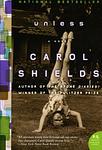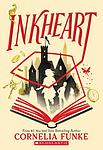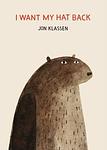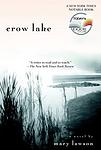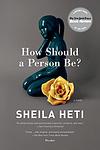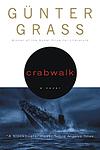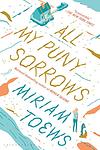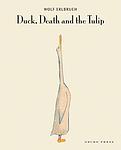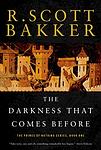The Greatest Canadian, German "Fiction" Books Since 2000
Click to learn how this list is calculated.
This list represents a comprehensive and trusted collection of the greatest books. Developed through a specialized algorithm, it brings together 285 'best of' book lists to form a definitive guide to the world's most acclaimed books. For those interested in how these books are chosen, additional details can be found on the rankings page.
Genres
Countries
Date Range
Reading Statistics
Click the button below to see how many of these books you've read!
Download
If you're interested in downloading this list as a CSV file for use in a spreadsheet application, you can easily do so by clicking the button below. Please note that to ensure a manageable file size and faster download, the CSV will include details for only the first 500 books.
Download-
1. Austerlitz by W. G. Sebald
The novel follows the story of Jacques Austerlitz, an architectural historian who was brought to England on a Kindertransport from Czechoslovakia during World War II. As an adult, Jacques embarks on a journey to uncover his past, including his original identity, his parent's fate, and his own lost history. The narrative is a haunting exploration of memory, identity, and the lasting impact of the Holocaust.
-
2. The Book Thief by Markus Zusak
Set in Nazi Germany during World War II, the novel follows the story of a young girl who finds solace in stealing books and sharing them with others. In the midst of the horrors of war, she forms a bond with a Jewish man her foster parents are hiding in their basement. The story is narrated by Death, offering a unique perspective on the atrocities and small acts of kindness during this period. The girl's love for books becomes a metaphor for resistance against the oppressive regime.
-
3. Life of Pi by Yann Martel
A young Indian boy named Pi Patel survives a shipwreck and finds himself adrift in the Pacific Ocean on a lifeboat with a Bengal tiger named Richard Parker. Over the course of 227 days, Pi uses his knowledge of animal behavior and survival skills to coexist with the tiger, ultimately leading to an unusual and deeply spiritual journey. The story explores themes of faith, survival, and the interpretation of reality.
-
4. The Blind Assassin by Margaret Atwood
The novel is a complex narrative that weaves together the story of two sisters in early 20th century Canada, one of whom publishes a scandalous novel that leads to her suicide. The surviving sister, now an elderly woman, reflects on their lives, revealing family secrets, heartbreak, and the truth behind the scandalous novel. The narrative is interspersed with excerpts from the controversial book, a science fiction story within a story, adding layers of intrigue and mystery.
-
5. Unless by Carol Shields
The novel is a narrative about a middle-aged, successful writer who is grappling with the sudden and inexplicable decision of her eldest daughter to drop out of college and live on the streets. The daughter communicates only one word, "Goodness", which she writes on a cardboard sign. The story explores the protagonist's struggle to understand her daughter's choice, while also delving into themes of feminism, the nature of goodness, and the power of words.
-
6. Oryx and Crake by Margaret Atwood
Set in a post-apocalyptic world, the novel follows the life of Snowman, who believes he may be the last human on earth, as he struggles to survive in a new, harsh environment. He is surrounded by genetically modified creatures, and his only companions are the Crakers, human-like beings created by his brilliant but disturbed friend Crake. Through Snowman's memories, the story of how the world came to be this way is revealed, involving a love triangle with the mysterious Oryx and the catastrophic consequences of Crake's scientific experiments.
-
7. Station Eleven by Emily St John Mandel
"Station Eleven" is a post-apocalyptic novel that revolves around the lives of several characters before and after a devastating flu pandemic wipes out most of the world's population. The narrative jumps back and forth in time, exploring the interconnectedness of the characters' lives through their shared memories and experiences. The story also follows a traveling Shakespearean theatre company as they navigate the dangers of a collapsed civilization, emphasizing the importance of art and human connection in times of crisis.
-
8. The Swarm by Frank Schatzing
"The Swarm" is a science fiction novel that explores the disastrous consequences of mankind's exploitation of the world's oceans. The narrative follows a group of scientists around the world as they try to understand a series of inexplicable, catastrophic natural disasters. They eventually discover that these events are not random but are the result of a collective intelligence in the sea, a swarm of marine life that has decided to fight back against humanity's destruction of their habitat. The book combines elements of ecological thriller, disaster novel, and speculative fiction as it explores the potential consequences of human interference with the natural world.
-
9. Inkheart by Cornelia Funke
The book revolves around a young girl named Meggie and her father Mo, who possesses a unique ability to bring characters from books to life by reading aloud. This gift, however, comes with a price, as they are entangled in a dangerous adventure when a villain from a fantasy book called "Inkheart" is accidentally summoned into the real world. As they struggle to fix the chaos caused by this crossover, they must navigate a treacherous world of magic and betrayal, while attempting to thwart the villain's sinister plans and protect the balance between reality and the fantastical realms of literature.
-
10. I Want My Hat Back by Jon Klassen
-
11. Runaway by Alice Munro
"Runaway" is a collection of short stories that explore the depth of human relationships, the complexities of love, and the consequences of life's unpredictable turns. The stories revolve around women of varying ages and circumstances, each dealing with her own unique situation. Some are escaping from their past or present situations, while others are struggling to find their place in the world. The narratives delve into themes like betrayal, loss, and the often complicated dynamics between parents and children, and husbands and wives.
-
12. Hateship, Friendship, Courtship, Loveship, Marriage by Alice Munro
"Hateship, Friendship, Courtship, Loveship, Marriage" is a collection of nine short stories that explore the complexities of human relationships. Each story delves into the intricate web of emotions and experiences that define the human condition, including love, hate, friendship, courtship, and marriage. The characters are rendered with depth and nuance, their lives marked by moments of profound change and subtle transformation. The stories are set against the backdrop of rural and urban landscapes, offering a rich, evocative portrayal of life in all its complexities and contradictions.
-
13. The Beauty Of The Husband by Anne Carson
"The Beauty of the Husband" is a poetic exploration of a failing marriage. Told in 29 tangos, the narrative unfolds the story of a woman who remains in love with her husband despite his numerous infidelities. The husband, a charming and deceitful character, is portrayed as a figure of magnetic attraction and revulsion, with his wife drawn to his charisma and repelled by his dishonesty. The book is a profound examination of love, betrayal, and the complex dynamics of relationships.
-
14. Measuring the World by Daniel Kehlmann
"Measuring the World" is a historical novel that reimagines the lives of two brilliant and driven men, German mathematician Carl Friedrich Gauss and German geographer Alexander von Humboldt. The narrative alternates between the two protagonists, exploring their individual quests to quantify and understand the world. Gauss, a child prodigy from a poor family, rises to become one of the greatest mathematicians in history, while Humboldt, a wealthy and ambitious explorer, embarks on a five-year journey across South America. Their paths converge in a humorous and touching manner, highlighting the contrast between their approaches to knowledge and discovery.
-
15. Crow Lake by Mary Lawson
"Crow Lake" is a compelling novel that explores the dynamics of a rural Canadian family dealing with tragedy. After the death of their parents, the Morrison children struggle to stay together and maintain their family farm. The story is narrated by the youngest daughter, who is now a successful zoologist, reflecting back on her childhood. The narrative delves into themes of love, loss, survival, and the power of education, all set against the backdrop of the harsh, yet beautiful, northern Ontario landscape.
-
16. De Niro's Game by Rawi Hage
The novel delves into the lives of two childhood friends navigating the treacherous landscape of war-torn Beirut. As the city crumbles under the weight of the Lebanese Civil War, the young men find themselves drawn into the violence and chaos that surrounds them. One chooses the path of emigration, seeking a new life abroad, while the other becomes embroiled in the militia warfare that dominates the streets. Their friendship is tested by the brutality of their environment, as they grapple with the moral complexities of survival, loyalty, and the devastating impact of conflict on the human spirit.
-
17. Chanda's Secrets by Allan Stratton
Chanda's Secrets is a poignant story set in Sub-Saharan Africa, where the protagonist, a sixteen-year-old girl, grapples with the harsh reality of AIDS in her community. The novel explores the stigma and fear associated with the disease, as well as the courage and resilience of its characters. The protagonist's unwavering determination to keep her family together, despite societal pressures and personal tragedy, forms the crux of the narrative.
-
18. The Blind Side of the Heart by Julia Franck
"The Blind Side of the Heart" is a historical novel that explores the life of a German woman before, during, and after World War II. The story begins with her abandonment of her young son at a railway station, then flashes back to her own childhood, her experiences during the war, and her tumultuous relationships. The narrative provides a deep and unflinching look at the psychological effects of war and the struggle for survival, as well as the profound impact of trauma and loss.
-
19. How Should a Person Be? by Sheila Heti
This novel is a semi-autobiographical exploration of friendship, art, and the question posed by the title. The protagonist, a young playwright, struggles with her art and personal life, navigating complicated relationships and seeking answers about how to live a good and meaningful life. The narrative blends elements of fiction, memoir, self-help, and philosophy, resulting in a unique and thought-provoking exploration of identity, creativity, and the human condition.
-
20. Crabwalk by Günter Grass
This novel delves into the tragic sinking of the Wilhelm Gustloff, a German ship, during World War II, through the eyes of a journalist investigating the event's historical and personal ramifications. The narrative weaves together past and present, exploring the intergenerational impact of the catastrophe on survivors and their descendants. The author employs a unique storytelling technique, the "crabwalk," moving backward and forward in time to reveal the complexities of guilt, memory, and the reinterpretation of history. Through its intricate plot and deep character exploration, the book addresses the themes of nationalism, the repercussions of war, and the struggle to come to terms with one's heritage.
-
21. Anil's Ghost by Michael Ondaatje
"Anil's Ghost" is a gripping tale of a forensic anthropologist who returns to her native Sri Lanka in the midst of its civil war. She partners with local archaeologist, Sarath, to investigate a skeleton discovered in an ancient burial site, which they believe might be a victim of the war. The narrative explores the horrors of war, the quest for truth, and the struggle for personal and national identity in a land where the past and present are inextricably intertwined.
-
22. Family Matters by Rohinton Mistry
This novel delves into the complexities of family life in Bombay, exploring the challenges and emotional turmoil within a small, crowded apartment that becomes a battleground of generational conflict. At the heart of the story is an elderly patriarch whose declining health necessitates care, leading to tensions and revealing the deep-seated resentments and secrets that threaten to tear the family apart. Through a rich tapestry of characters and meticulously detailed narrative, the book presents a poignant examination of duty, love, and the strains that familial obligations impose on individual desires and dreams, set against the backdrop of a rapidly changing Indian society.
-
23. All My Puny Sorrows by Miriam Toews
All My Puny Sorrows is a poignant exploration of the complex relationship between two sisters, one a successful concert pianist battling severe depression and the other a struggling writer trying to support her. The narrative delves into themes of mental illness, suicide, love, and the power of familial bonds. It grapples with the moral and ethical questions surrounding assisted suicide, the struggle to understand a loved one's pain, and the lengths to which one might go to help them find peace.
-
24. Duck, Death And The Tulip by Wolf Erlbruch
"Duck, Death And The Tulip" is a poignant and thought-provoking illustrated book that explores the themes of life, death, and friendship. The story follows a duck who unexpectedly befriends Death, and together they embark on a journey of contemplation and acceptance. Through their conversations and experiences, the book delicately tackles the existential questions surrounding mortality, while offering a tender and comforting perspective on the inevitability of death.
-
25. The Darkness That Comes Before by R. Scott Bakker
The novel is a complex epic fantasy that delves into a world on the brink of apocalypse, where political intrigue, ancient prophecies, and religious conflict intertwine. It follows an array of characters, including a manipulative sorcerer, a warrior monk with a troubled past, and a mysterious and intellectually gifted barbarian, as they navigate a landscape fraught with ancient empires and emerging factions. The narrative explores themes of free will, morality, and the human capacity for both great enlightenment and profound darkness, set against the backdrop of an impending holy war that threatens to consume the known world.
Reading Statistics
Click the button below to see how many of these books you've read!
Download
If you're interested in downloading this list as a CSV file for use in a spreadsheet application, you can easily do so by clicking the button below. Please note that to ensure a manageable file size and faster download, the CSV will include details for only the first 500 books.
Download



